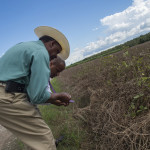BATON ROUGE, La. –If you’re a disaster survivor who wants to extend temporary housing assistance from FEMA it’s important to provide the proper documents in order to make your request.
If you’re eligible for an extension, you may use temporary housing assistance to pay for a place to live, such as a house, apartment, hotel or recreational vehicle. The assistance covers rent, security deposit and essential utilities like electricity and water.
To continue receiving temporary housing assistance, you have to complete and submit the following paperwork to FEMA that demonstrates you have a disaster-related and financial need:
- A completed form FEMA provides you. Contact FEMA if you haven’t received a form.
- A copy of your lease.
- Receipts showing proper use of the federal disaster housing assistance you’ve received.
- Current household income status.
- Any household financial obligations.
Keep your contact information current so you receive correspondence from FEMA. Update information online at disasterassistance.gov or by downloading and using the FEMA app. You may also call FEMA’s helpline at 800-621-3362. If you use TTY, call 800-462-7585. If you use 711 or Video Relay Service, call 800-621-3362.
The state and FEMA encourage you to develop a permanent housing plan while you’re receiving temporary housing assistance. Free assistance and tools are available to help you find more permanent housing if you’re having difficulty creating a plan. Just call the FEMA helpline or visit a Louisiana Disaster Recovery Center. Locate your closest center by going to fema.gov/drc or by calling the FEMA helpline.
###
See original:




